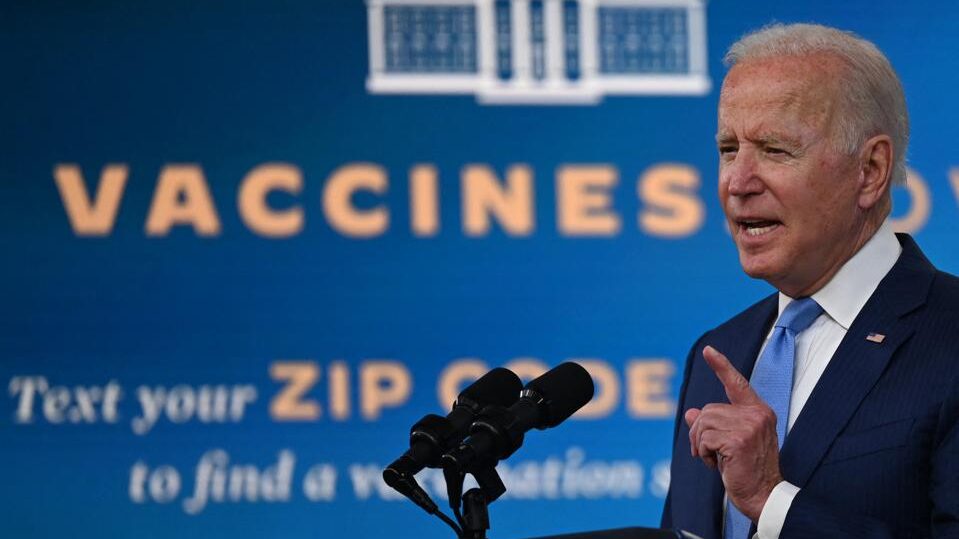
By Glory Feb, 25, 2022 Business
On November 4, 2021, President Joe Biden announced new
initiatives to combat COVID-19, including a new vaccine mandate for millions of
American workers. The mandate, in the form of an Emergency Temporary Standard
(ETS), would apply to businesses with 100 or more employees and would have been
imposed by the Department of Labor's Occupational Safety and Health
Administration (OSHA) (DOL).
Affected personnel would be required to receive shots
of the COVID-19 vaccine or undergo weekly testing under the ETS. Workers would
be compensated for taking time off to get vaccinated.
Businesses with less than 100 employees are not
included in the OSHA vaccine requirement. However, other vaccine mandates may
affect such businesses, depending on the type of business or the partners
involved. This could include, regardless of size, the following enterprises or
organizations:
·
Facilities that receive Medicare and Medicaid
payments include nursing homes, hospitals, and other healthcare facilities.
·
Head Start programs that are housed in
facilities.
Vaccine mandates were estimated to affect 100 million
workers, or nearly two-thirds of the workforce in the United States.
Vaccination mandates are beneficial to the economy, according to President Joe
Biden in remarks introducing the mandate. "They not only increase
vaccination rates but they help send people back to work—as many as 5 million
American workers. They make our economy more resilient in the face of COVID and
keep our businesses open.”
Here's a summary of what the ETS mandate would have
been:
The ETS mandate would have had an impact on private
firms with 100 or more employees, either individually or as a whole.
·
Part-time employees are counted: A company
with 50 full-time employees and 50 part-time employees has 100 employees and is
subject to the ETS.
·
Employees would not have been counted
because independent contractors were not considered employees.
·
If employed by the company, temporary
workers would have been considered employees.
·
Employees who are minors would be counted
(and may require parental consent before getting vaccinated).
·
Employees who work from home, do not
report to a worksite, or work outside are not covered by the ETS.
·
Exclusions would be offered to those who
are medically exempt or have a federal civil rights accommodation
The Supreme Court ruled against the
vaccine mandate
The Supreme Court, last month, prevented the Biden
administration from implementing a vaccine-or-testing rule for major employers,
thus killing a crucial component of the White House's effort to combat the
pandemic at a time when coronavirus cases caused by the Omicron variety are on
the rise.
The Supreme Court ruled that the obstacles created by
a global pandemic do not authorize a federal agency to wield powers that it has
not been given by Congress. At the same time, such unusual circumstances give
no justification for restricting the agency's ability to use powers that have
long been acknowledged.
However, the court permitted a more restricted rule
for health care employees at facilities receiving federal funds to get
vaccinated, which was a minor triumph for President Biden.
The employer requirement case was decided by a 6 to 3
vote, with the liberal justices dissenting. Chief Justice John G. Roberts Jr.
and Justice Brett M. Kavanaugh joined the liberal justices to establish a
majority in the health-care case, which was 5-4.
The employer ruling thwarted one of President Biden's
most important efforts to contain the virus, leaving the country with a
patchwork of state laws and practices, essentially leaving companies and
enterprises to their own devices.
The president said in a statement that the verdict in
his favor would save the lives of health-care professionals and patients.
However, he expressed disappointment that the court had reversed the employer
mandate, which he claimed was deeply grounded in both science and the law.
The justices looked into whether Congress had
empowered the executive branch to take broad actions to address the health-care
issue in both the employer and health-care worker cases.
Tags: Biden Vaccine Mandate CVOID-19 Vaccination Businesses
Share On Facebook Twitter Linkedin Whatsapp Telegram
Categories
Latest Post
- Nigeria Taps Global Markets with $2.25B Eurobond Sale
- Boeing Shares Rise as CEO Confirms China Deliveries to Resume Next Month
- STOCK SPOTLIGHT: UNION HOMES REAL ESTATE INVESTMENT TRUST (UHREIT)
- Nvidia Q1 2025 Earnings Report Summary
- 📉 U.S. Market Summary – May 28, 2025
- CBN Launches New Financial Tools to Boost Nigeria’s Non-Interest Banking Sector! ✨
- Market Watch: Key Updates as Wall Street Awaits Nvidia and Salesforce Earnings
- U.S. Equity Markets Rally as EU Tariff Deadline Is Extended and Consumer Confidence Surges
- Things to Know Before the U.S. Stock Market Opens
- What to Expect in the Markets This Week (May 27–31)

Start investing with Acorns today! Get $5 when you use my invite link: Z24WWE
